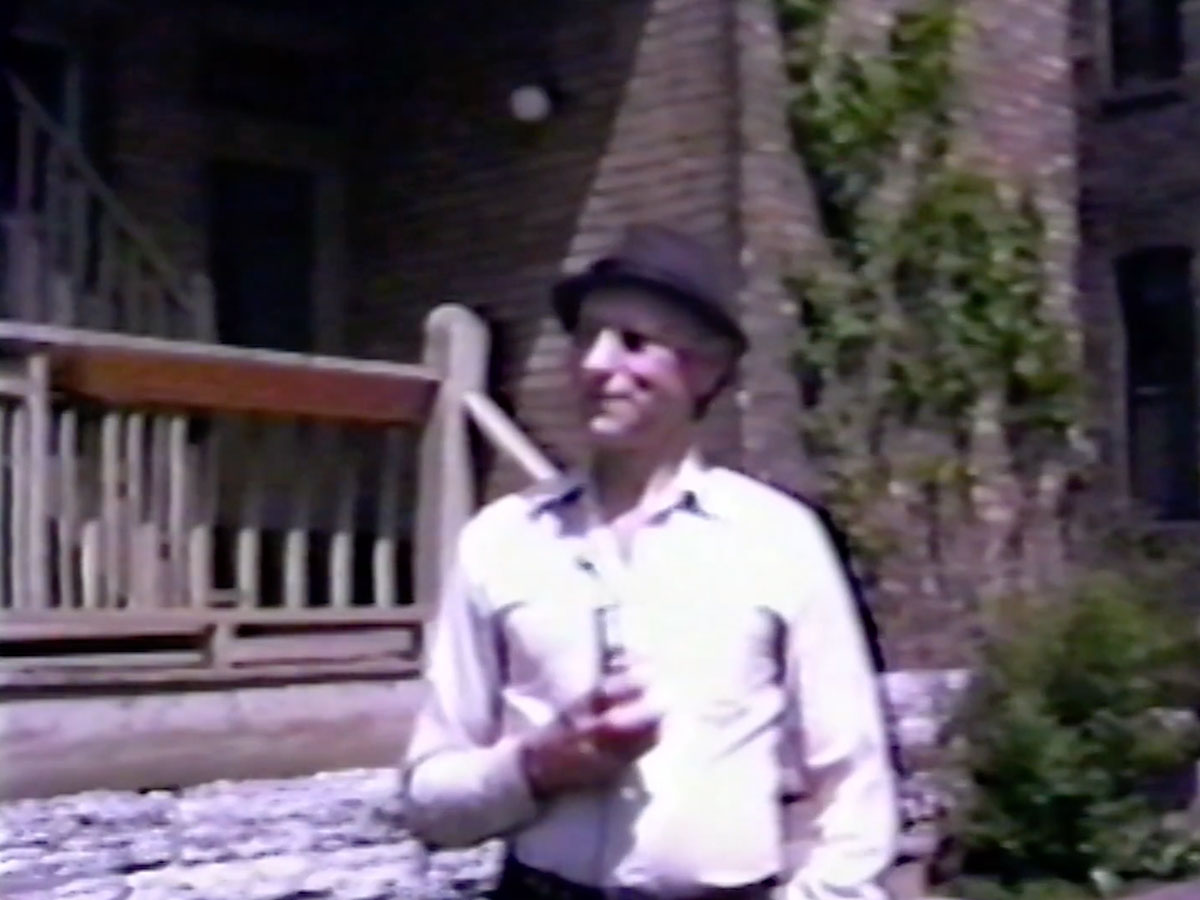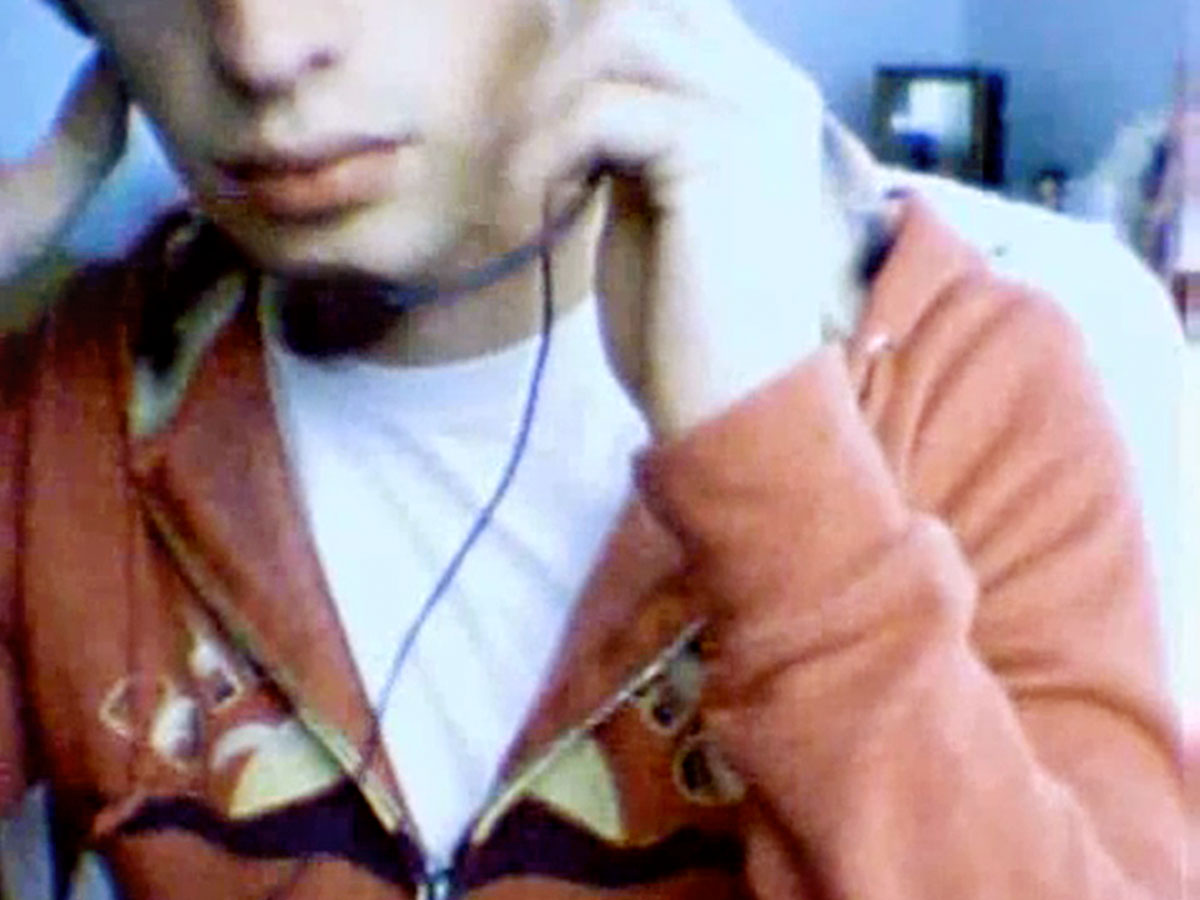
Self-Portrait
In what one could call Jonas Mekas’ first video blog, the Lithuanian avant-garde filmmaker reflects on his life and the art of cinema and representation.
“Cinema often tends to exist in mourning mode. Purists lament most technological novelties as one step further towards film’s inevitable death. Yet for Jonas Mekas—clearly a medium optimist—cinema eternally remains at its beginning. In Self-Portrait (1980), the Lithuanian filmmaker exceptionally features in front of the camera, delivering a manifesto of sorts that covers his own work, the moving image and reality—all while drinking a can of beer in the afternoon heat. Crucially, Mekas is not filmed but taped; he declares himself a man of film, but we know he will later embrace video, too.
On the one hand, in perfect Mekasian fashion, this 20-minute unedited footage seems no more than a memory of an uneventful sunny day. On the other hand, this is an act in support of video and all the other tools that are still to come, for, as he explains, no kind of image is above another. They all serve to reinvent and expand the art of cinema.
Looking brightly into the future, Self-Portrait is also somewhat of a proto-vlog, anticipating the kind of visual revolution and self-interaction with the camera that the Internet brought—the subject of Olivia Rochette & Gerard-Jan Claes’ Because We Are Visual.” — Dora Leu
Self-Portrait was hand-picked by Dora Leu, in response to Olivia Rochette & Gerard-Jan Claes’ Because We Are Visual. Leu is a Romanian film critic and filmmaker currently based in Dublin. She works as a programmer for the Bucharest International Experimental Film Festival (BIEFF) and as an associate curator for the feminist film initiative F-SIDES. She is currently undertaking a PhD in film at Trinity College Dublin, investigating video-nostalgia and the role that videotape plays in describing both contemporary identities and personal histories on screen. Her main interests are poor images, Japanese and Hong Kong cinema, and she spends her days quoting Nagisa Oshima.
By means of visual material gathered from online sources, filmmakers Olivia Rochette and Gerard-Jan Claes create a unique poetic realm in which thoughts, fears, desires, and worries are shared via webcam, and merge together.



